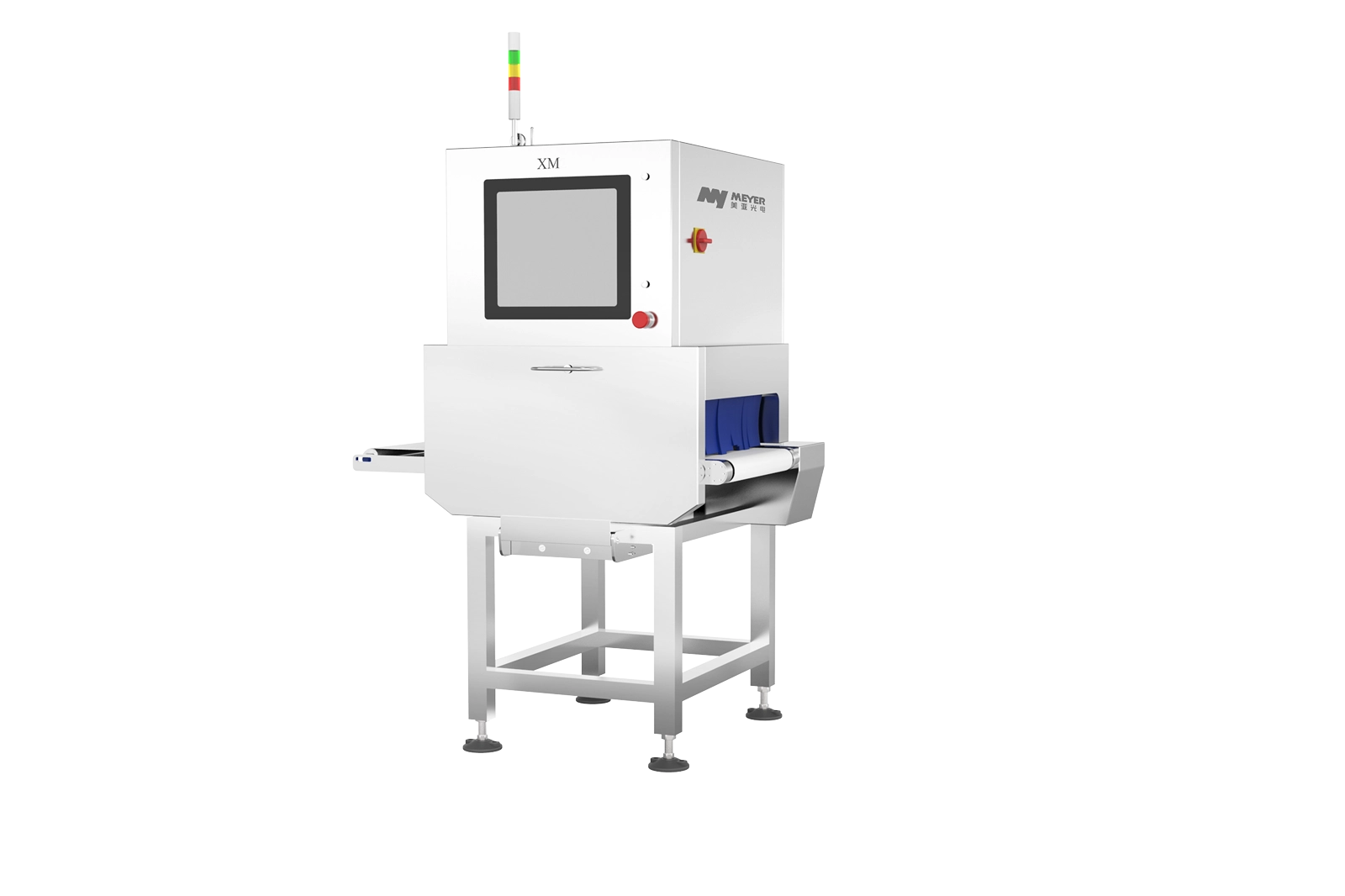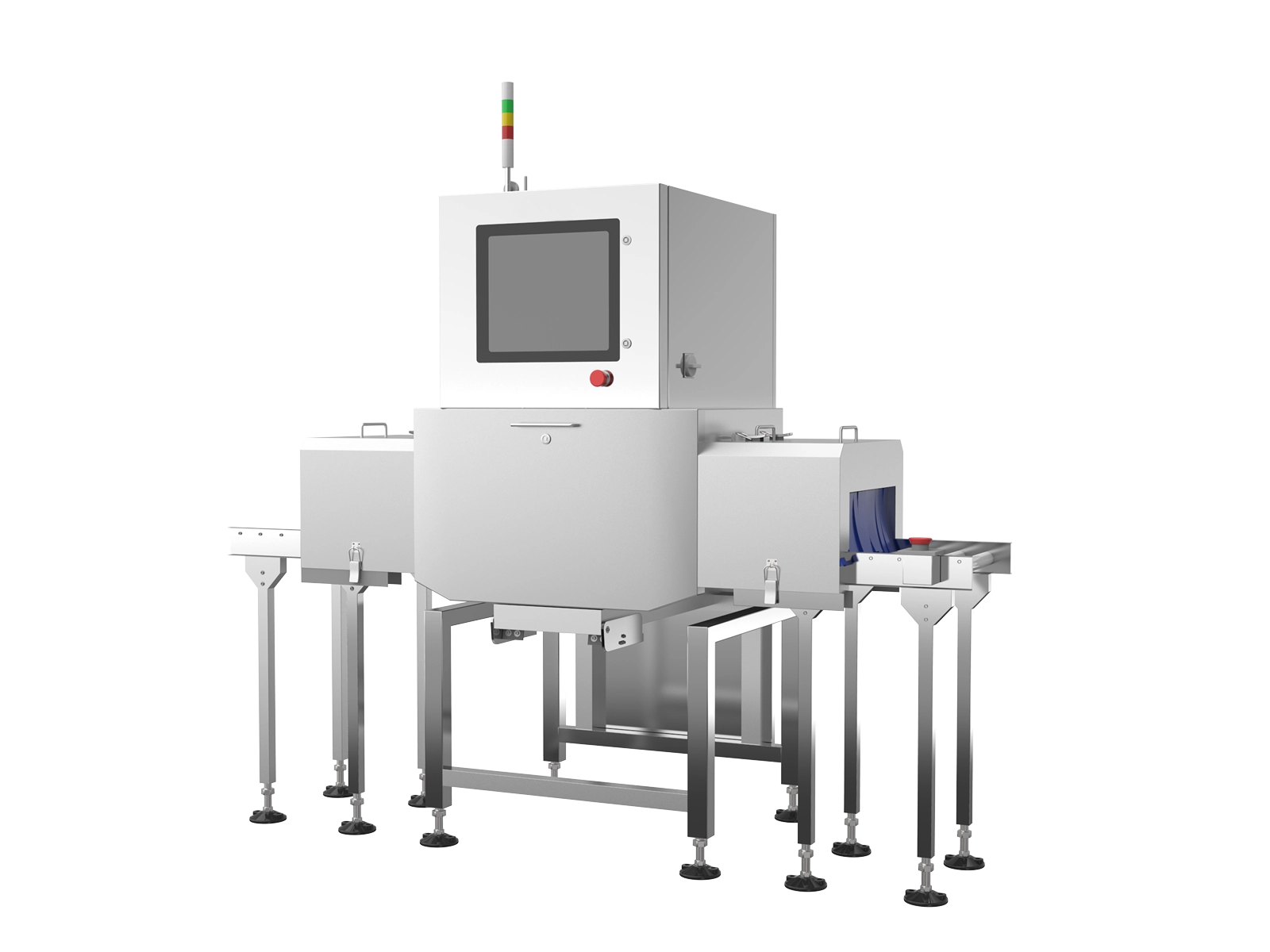Meat & seafood sorting
Enhancing Meat & seafood sorting efficiency with Meyer advanced sorting technology
Improve Meat & seafood sorting quality and increase throughput
Meat & seafood optical sorting process
Sorting meat and seafood with X-RAY detectors is a revolutionary technology that ensures the highest standards of food safety and quality. MEYER machines precisely detect and eliminate all foreign objects – from metals, glass, and plastic to hard-to-spot contaminants such as bone fragments, cartilage, and shell pieces. For seafood, our MEYER X-RAY detectors effectively identify hidden foreign objects even within closed shells. For the meat industry, MEYER X-RAY technology detects animal bone residues, cartilage, and other contaminants, eliminating the risk of their presence in final products.
See sorting samples
Best sorting machines for Meat & seafood sorting
Benefits of using Meat & seafood sorting machines
Increased purity and quality
Optical sorters can detect and remove discolored materials, foreign materials, and defects such as stones, sticks, or damaged grains. This results in higher purity and quality of the final Meat & seafood product, meeting consumer and market standards.
Better Efficiency and Throughput
Optical sorting technology allows for the processing of large volumes of Meat & seafood quickly and accurately, significantly improving throughput compared to manual sorting methods.
Reduced Labor Costs
Automated sorting reduces the need for manual labor, leading to cost savings and reduced human error in the sorting process.
Improved Product Value
Higher quality and purity of sorted Meat & seafood can lead to better market prices and customer satisfaction.
Versatility and Flexibility
Optical sorters can be used for different varieties of Meat & seafood and can be adjusted for different sorting needs, making them versatile tools in Meat & seafood processing.
Reduced Waste
Efficient sorting helps reduce waste by ensuring that only genuinely defective materials are removed, while maximizing the amount of good product.
Data Collection and Analysis
Modern optical sorting systems can collect valuable data about the waste stream, such as composition and contamination levels, aiding in process optimization and regulatory compliance.
Decreased Environmental Impact
By increasing the amount and quality of recycled materials, optical sorters contribute to reduced reliance on virgin resources, lower greenhouse gas emissions, and a smaller environmental footprint for waste management operations.
Enhanced Product Safety
By removing contaminated grains or foreign objects, optical sorters help prevent potential health hazards, contributing to safer products.
Our clients’ stories
Frequently Asked Questions
What are the benefits of using X-RAY detectors in the meat and sea food industry?
Elimination of hazardous contaminants such as bone fragments and cartilage, Increased food safety, Compliance with quality standards and industry regulations, Reduced risk of complaints and product returns
Does X-RAY detection work on frozen products?
Yes, X-RAY machines effectively scan both fresh and frozen products without the need for defrosting.
What is the process of testing the machine before implementation?
We offer testing opportunities at our Test Center, where customers can evaluate the effectiveness of the X-RAY system on their own products. This allows for machine parameters to be adjusted to individual needs. To schedule a test, please use the form at the bottom of the page or go to the “Contact” section and select a representative for your region

